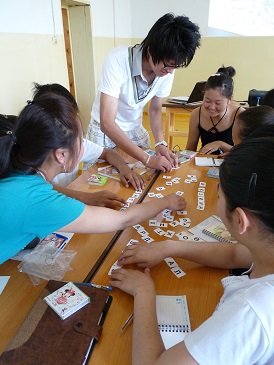LESSON
Lesson Learned: Gender Equality and Equity - Follow Up to CEDAW and Romani women
The initiative to train young women activists to undertake research on the socio-economic conditions of Roma women in local communities was effective both in terms of the training and the value and relevance of the data collected. Working with two partners, the grantee was responsible for the development of the Shadow CEDAW Report in 2005, submitted to the UN CEDAW Committee. The document is regarded as highly credible and is widely used by both domestic and international organizations. It is also an effective advocacy tool. The new data will be used in compilation of the next Shadow CEDAW Report.
Project Partner
Roma Center Skopje
Project Description
The project had two primary audiences: Roma women’s NGOs and young Roma women activists. There were three additional audiences: local government officials; young people, Roma and non-Roma; and, officials of Roma political parties. This focus sought to address in a practical way the weakness of Roma civil society organizations, and particularly those led by, and working for, Roma women, in undertaking advocacy on behalf of their own people.
The grantee accomplished a great deal with the small amount of funds provided. It built on the strategic plan developed for 2008-2010, and its earlier project “Implementation of CEDAW for Romani Women”, as well as follow-up initiatives (2005-2008). Through an extremely careful allocation of funds to different areas of activity, the organization was able to undertake a long list of activities and, thus, achieve its own objective. Yet, from an external perspective, it is apparent that there were insufficient funds for some activities, where follow-up was badly needed.
Report
Evaluation Date
November 2011
Theme
